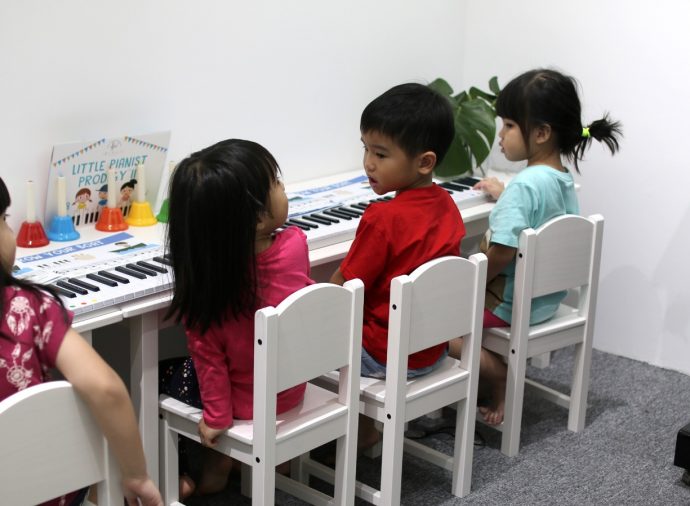
5 Benefits of Children Learning the Piano:
1. Piano lessons improve focus & concentration!
Practice makes perfect! Sitting in front of the piano and practicing to learn pieces tremendously improves concentration and focus skills. To play the piano, students learn to use both hands, read music, listen to notes, sing aloud notation, and play rhythm accurately. That’s a lot to do at once! These skills and training significantly improve the child’s concentration skills and focus in the long run.
2. Playing music makes kids smarter!
Yes, piano lessons do make you smarter and increase IQ in both adults and children.
Studies conducted over the years show that, after about a year of weekly piano lessons and practice, on average, children’s IQ went up about 4.3 points. There is scientific proof that playing the piano can actually make you smarter.
Playing the piano engages parts of the brain that are beneficial in subjects like science, math, reading composition, and other cognitive functions.
Ps: Our Little Pianists start learning using the Roll Piano that we provide, making picking up piano foundation even easier as it doesn’t intimidate or stress the young student. Eventually, as the child develops passion and interest in learning, they can move on to a piano with weighted keys.
3. Learning to play the piano boosts self-esteem.
Attaining skills and the ability to play the piano and receiving praise helps raise confidence in a young child. High self-esteem is subsequently linked to higher levels of happiness and a sense of achievement. With higher levels of self-esteem, children are more likely to take on tasks that may seem more challenging and expand their skills and abilities as they grow.
Group lessons also help children realize that nobody, including themselves or their peers, is perfect, and everyone has room for improvement. This setting also enables the child to make mistakes and learn through interactions without prejudice or judgment.
At JoyWaltzAcademy, we offer lessons to allow our students to learn in an optimal environment with their peers (group) or in an intimate setting (individual). The Pianist Prodigy curriculum provides activities and opportunities for practice so our students can pick up a proper foundation in a fun and engaging manner with confidence!
4. Learning the piano teaches the importance of hard work and persistence
Learning new songs on the piano takes time, persistence, and effort. It is an uphill task when you start to learn something new and inevitably do it badly. It may take several weeks of practice to play a song fluently. The accomplishment of being able to play pieces well after each practice teaches the child to stay motivated, learn patience, and increases their perseverance. These skills will be beneficial when they are confronted with difficult tasks at school or in life.
Little Pianist Prodigy level progresses together with each student while preparing them to be equipped with ABRSM foundation. With each increasing difficulty, we use songs and activities to keep our students motivated as they are eager to master their next recital piece at the end of each lesson.
5. Piano playing reduces stress
Studies show that time spent at the keyboard improves mental health. Making music is a powerful way to help ourselves stay mentally and physically healthy. Playing the piano instrument can lower cortisol levels and decrease a person’s anxiety level. Piano practice also improves mood and quality of life, especially with children too. While playing music, it doesn’t only calm ourselves but brings joy to others as well.
After all, when you create music with your own two hands while tinkling on the piano, you can’t help but feel good about it. It doesn’t matter how young or how old you are! 🙂